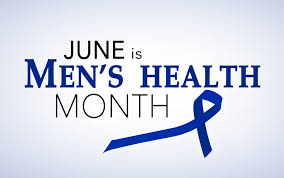As Men’s Health Month closes out, it’s worth noting the disparities that exist among men of different racial and ethnic backgrounds. Although some health advice like eating well, getting enough sleep, maintaining a healthy weight, managing stress, and exercising are across-the-board good measures, men experience distinct health challenges they should be aware of. And among minority men, there are even more serious health challenges as well.
Here are four men’s health problems that minority men might want to pay extra attention to. Knowing what health issues they are more prone to, being aware of early detection, and having a plan to help mitigate these health threats can reap huge payoffs.
Heart Disease
Many factors influence heart disease, and racial and ethnic minority men tend to experience this condition at higher rates than whites, according to the American Heart Association. Trying to track and control blood pressure, cholesterol, and other lipid levels like triglycerides will help. It’s always a good idea to remind anyone, male or female, that high blood pressure and high cholesterol don’t always come with symptoms, but are especially problematic.
Prostate Cancer
Prostate cancer is one of the top men’s health issues. Black men receive a disproportionate number of new prostate cancer diagnoses. According to the Centers for Disease Control and Prevention, black men experience 160.5 new cases (per 100,000 men) of prostate cancer for every 91.9 new cases for white men. Hispanic men experience a slightly lower rate than both groups at 79.5, but the risk for all men increases with age. Regular checks can help with early detection.
Diabetes
The American Diabetes Association states that while minorities deal with diabetes at higher rates, they also are more likely to suffer complications from the disease. Getting tested is essential to keep track of blood sugar numbers. If someone has diabetes, keeping on top of treatment is key to lessening the chances of complications. Like heart disease, diabetes can have life-altering and life-threatening complications if left untreated.
Mental Health
Cultural taboos around mental health issues can actually contribute to the problem. If men are uncomfortable or feel ashamed about their mental health struggles, they won’t seek treatment. A report by the American Psychological Association noted that of men reporting depression symptoms lasting longer than a year, black men are in a much higher bracket. In that category, 56 percent of black men vs. 38 percent of white men report those symptoms. The same report also states findings that show American Indian/Alaskan native men had the highest suicide rates of all ethnicities of men. This is a slow but steady struggle, but normalizing mental health to deal with it as the physical disease it is, and not a weakness, can help remoe the stigma. Many more minorities lack access to mental health care, so helping patients find care that is accessible might remove a barrier to getting help.
Minority men face specific men’s health struggles, and as a nurse just opening up the conversation around some of these topics can be a game changer.
- WOC Nurses Week Highlights Specialty - April 16, 2024
- Honoring Radiology Nurses Day on April 12 - April 12, 2024
- Travel Offers New Career Possibilities - April 8, 2024



